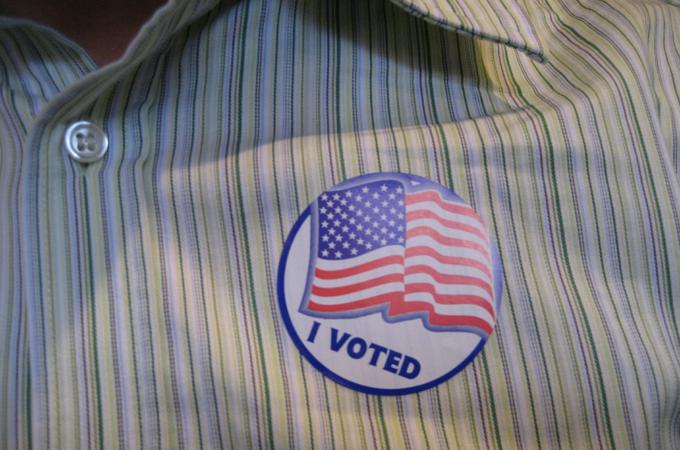Voting for Hillary and hell
Q. I voted for Hillary Clinton in the recent presidential election. One priest (and maybe others) indicated that those who voted for Hillary would spend an eternity in hell. Is this correct? (Colonia, New Jersey)
A. I hope not. The Pew Research Center has determined that, in the 2016 U.S. presidential election, 45 percent of Catholics voted for Hillary Clinton. (Fifty-two percent voted for Donald Trump.) That would mean that 13 million of Catholics voted for Clinton, and I shudder to think that all of them are consigned to eternal damnation.
The best voting advice comes not from the individual priest whom you happened unfortunately to encounter, but from the pope himself and from the U.S. Catholic bishops. A month before the election, on a flight back to Rome from Eastern Europe, Pope Francis was asked by reporters about the upcoming U.S. vote. He was reported to have said: "During an election campaign, I never say a word. The people are sovereign, and all I will say is this: Study the proposals well, pray and choose in conscience!"
That guidance was consistent with the advice given by the U.S. Conference of Catholic Bishops in their quadrennial document entitled "Faithful Citizenship." In the most recent version (issued in 2015), they said: "We bishops do not intend to tell Catholics for whom or against whom to vote." Instead, the bishops encourage readers "to evaluate policy positions, party platforms and candidates' promises and actions in light of the Gospel and the moral and social teachings of the church."
To help Catholics do that, the bishops list more than a dozen issues of public policy that intersect deeply with moral concerns, the goal being to advance the common good "by defending the inviolable sanctity of human life from the moment of conception until natural death, by promoting religious freedom, by defending marriage, by feeding the hungry and housing the homeless, by welcoming the immigrant and protecting the environment."
The bishops caution Catholics who might be tempted "to use only selected parts of the church's teaching to advance partisan political interests or validate ideological biases," and they note that "there may be times when a Catholic who rejects a candidate's unacceptable position even on policies promoting an intrinsically evil act may reasonably decide to vote for that candidate for other morally grave reasons."
Q. Recently I attended a service for the sick. The priest read a passage from the Gospel and then he distributed holy Communion before anointing the sick. Since it was a Saturday afternoon, I stayed in church afterwards and attended the Sunday vigil Mass.
I have two questions. First, would my presence at the service as described be considered as having attended Mass? And second, since I received Communion at the service for the sick, would I be permitted to receive again at the vigil Mass? (Riverside, California)
A. Many parishes -- I would even say most -- celebrate a communal anointing of the sick once or twice a year. This is consistent with the church's desire, as expressed at the Second Vatican Council, that the sacrament not be reserved only for those who are at the point of death.
The council's Constitution on the Sacred Liturgy ("Sacrosanctum Concilium") states that "as soon as any one of the faithful begins to be in danger of death from sickness or old age, the fitting time for him to receive this sacrament has certainly already arrived" (No. 73).
I am a bit surprised, though, that the celebration you speak of included only a Communion service and not a Mass. In my experience, it is far more common for parishes to celebrate the communal anointing at a weekend Mass. If the priest you mentioned had waited until 4 p.m. on that Saturday afternoon, a Mass celebrated then would have fulfilled the Sunday obligation for those in attendance.
As to your questions: First, no, you did not satisfy that obligation simply by receiving Communion.
Catholics are required on Sundays and holy days of obligation to participate in the eucharistic sacrifice, during which the self-offering of Jesus is re-presented for our benefit; this means a full Mass, in which the bread and wine are offered with the appropriate prayers, transformed by the words of the priest into the body and blood of Christ and then received by the priest and those in attendance.
And yes, even though you received Communion at the anointing service, you would have been permitted to receive once more during the vigil Mass. A Catholic may receive Communion a second time during the same day, within the context of a Mass. Canon 917 of the church's Code of Canon Law says, "A person who has already received the most holy Eucharist can receive it a second time on the same day only within the eucharistic celebration in which the person participates."
- Father Kenneth Doyle is a columnist for Catholic News Service



















